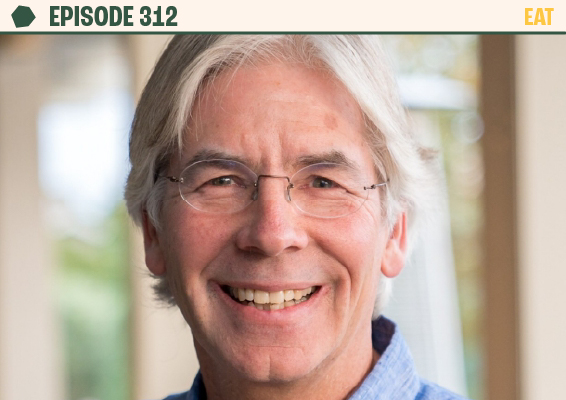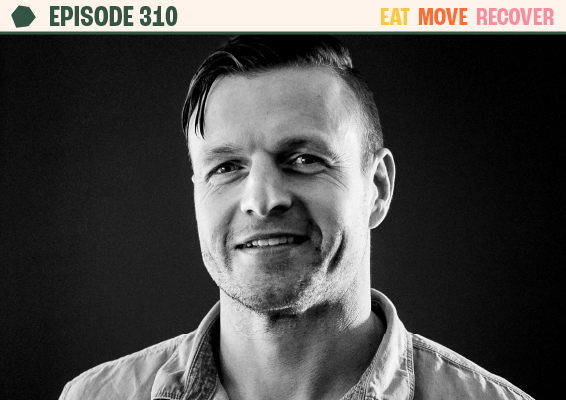Vegan vs. omnivore: learn about the Netflix documentary You Are What You Eat and the associated twin study with lead researcher, Christopher Gardner PhD. From publication, this study gained major media attention that was only amplified by the release of You Are What You Eat. With popularity comes criticism, in this case from some big names in online nutrition spaces. Hear the truth about the controversy surrounding this study and documentary, straight from the source.
“[The documentary] is the most impactful thing I have ever done in my career.”
Christopher Gardner, PhD is the Rehnborg Farquhar Professor of Medicine at Stanford and directs the Stanford Prevention Research Center’s Nutrition Studies Group. His research focuses on randomised controlled nutrition trials, studying the impact of various diets and supplements on chronic disease risk factors like cholesterol and inflammation. Recently, his work has evolved to explore broader motivators for dietary change, such as animal rights, climate change, and social justice, alongside a food systems approach that aims to improve food quality in institutions like universities and hospitals. This shift leverages interdisciplinary collaborations across Stanford to drive community-based nutritional improvements. Today’s episode is his sixth appearance on The Proof.
“When you get a bunch of scientists in the room and the data are in front of you, there is very little disagreement. We rarely have all the information to definitively and unequivocally say, ‘This is the thing you should eat or avoid.'”
In this episode, we examine Dr Gardner’s recently published study and the varying responses to the Netflix documentary You Are What You Eat. You’ll learn about the rationale behind the study’s design and explore its key findings. We also discuss in detail the major criticisms and controversies associated with both the documentary and the study.
Specifically, we discuss:
- Intro (00:00)
- Introduction and background on Christopher Gardner’s recent twin study (01:36)
- Navigating the Challenges of Science Communication and Critique (08:28)
- Introduction to the Twin Study and Its Unique Design (16:36)
- The Role of Identical Twins and Defining Plant-Based vs. Omnivorous Diets (22:45)
- Dietary Patterns and Health Outcomes: The Vegan and Omnivorous Diets (27:25)
- Diet Satisfaction and Adherence in Nutritional Studies (36:34)
- The Science of Study Design: Primary vs. Secondary Outcomes (42:05)
- Responding to critiques on calorie differences (51:58)
- Cardiometabolic Markers and Diet: A Deep Dive (55:17)
- Twin Nutrition Study Deep Dive: Lipid Markers, Cardiovascular Risk, and the Impact of Diet (01:00:13)
- Responding to Critiques (Peter Attia): The Complexity of Diet Studies (01:14:07)
- Addressing Critique of Mark Hyman (01:29:24)
- Funding from Beyond Meat and other organisations (01:38:55)
- Teaching about sustainability and stealth nutrition – Nina Teicholz critique (01:44:29)
- Is Plant-Based Diet good for the environmental health? (01:48:00)
- Reflecting on critiques and potential improvements to the study (01:53:47)
- Personal experience with the Netflix documentary (01:55:45)
- Outro (01:57:54)
Thank you to Dr Gardner for joining me on The Proof for another insightful episode. Dr Gardner’s insights always provide value and substance, and if you haven’t seen You Are What You Eat, I’d recommend you go check it out on Netflix with this context in mind.
Connect with Professor Christopher Gardner on Twitter/X and Instagram. Head to https://nutrition.stanford.edu/ for more resources and studies, and the Stanford Nutrition YouTube channel for more videos. Listen to past episodes featuring Professor Gardner here.
This episode is brought to you by:
InsideTracker
If you want to improve your health, you need to measure where you’re currently at. InsideTracker analyses up to 48 blood biomarkers including ApoB, LDL, HDL, A1C, and more before giving you advice to optimise your health. Get a 20% discount on your first order at insidetracker.com/simon.
Sun Home Saunas
Invest in your body and mind with Sun Home Saunas, pioneers in crafting premium saunas and cold plunges. Safe, effective, research-backed wellness tools to improve cardiovascular health, offer psychological benefits, and reduce muscle soreness. Head to sunhomesaunas.com/theproof for $300 off your purchase.
Momentous
My go-to supplement brand for protein and creatine is Momentous. Get 36% off subscriptions, and 20% off one-off purchases, by using the code LIVINGPROOF at checkout at livemomentous.com
Eimele
Eimele Essential 8 is a comprehensive multivitamin that is scientifically formulated to complement your plant-rich diet, increase and sustain your energy, and support the immune system, as well as heart and brain health. Head to Eimele.com and use code SIMON at checkout for 10% off your first order.
38TERA
Consider 38TERA’s DMN-01 prebiotic supplement a daily multivitamin for your gut. Formulated by yours truly and gastroenterologist Dr Will Bulsiewicz. Use code THEPROOF for a discount at checkout.
WHOOP
Whoop, the most advanced fitness and health wearable available. Your personalised fitness and health coach to recover faster, sleep better, and train smarter. Claim your first month free on join.whoop.com/simon.
More about Christopher Gardner, PhD
Dr Gardner is the Rehnborg Farquhar Professor of Medicine at Stanford, the director of Stanford Prevention Research Center’s (SPRC) Nutrition Studies Group, and the director of the SPRC postdoctoral research fellow training program. His primary research focus for the past decade has been randomised controlled nutrition intervention trials (soy, garlic, antioxidants, ginkgo, omega-3 fats, vegetarian diets, weight loss diets), testing the effects of these on chronic disease risk factors that have included blood cholesterol, weight, inflammatory markers, and the microbiome. His research interests have recently shifted to two new areas. The first is to approach helping individuals make healthful improvements in diet through motivators beyond health, linking to ongoing social movements around animal rights and welfare, climate change, and social justice, and their relationships to food. The second is to focus less on trying to improve individual behaviours around food, and more on a food systems approach that addresses the quality of food provided by universities, worksites, hospitals, schools, etc., using a community-based participatory research approach and taking advantage of the many complementary disciplines represented on the Stanford campus, such as medicine, business, education, law, and earth sciences.
Supporting studies
- Cardiometabolic Effects of Omnivorous vs Vegan Diets in Identical Twins: A Randomized Clinical Trial • PMID: 38032644
- Popular Dietary Patterns: Alignment With American Heart Association 2021 Dietary Guidance: A Scientific Statement From the American Heart Association • PMID: 37128940
- Plant-based dietary patterns and atherogenic lipoproteins • PMID: 37226572
Additional resources
- A study comparing the effects of vegan and omnivorous diets fails Science 101 • Peter Attia MD
- Do I Owe Vegans An Apology? New Study Review • Dr Layne Norton YouTube
- Why the Vegan Twin Study Got it Wrong • The Doctor’s Farmacy with Mark Hyman, M.D.







